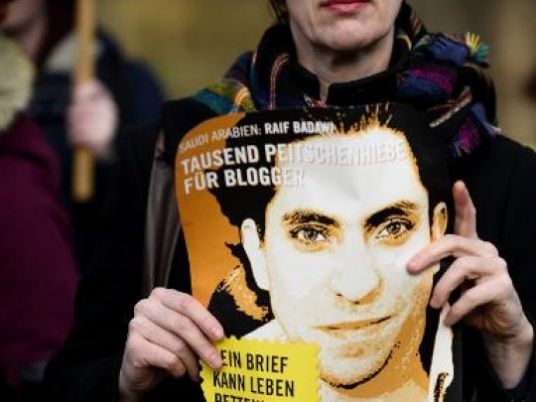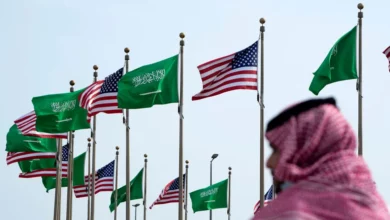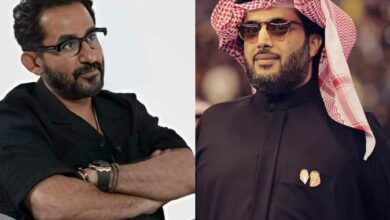
Saudi blogger Raif Badawi, who was sentenced to 1,000 lashes and 10 years in prison for insulting Islam, was awarded the European Parliament's prestigious Sakharov human rights prize on Thursday.
The 31-year-old blogger, who was arrested in 2012, is an outspoken advocate of free speech whose vicious public flogging in January, when he was subjected to a first round of 50 lashes, triggered an international backlash.
Announcing the award, parliament head Martin Schulz called on Saudi King Salman to immediately release Badawi, denouncing his sentence as "brutal torture" and demanding that Riyadh live up to Europe's standards on the crucial question of human rights.
"This man has had… imposed on him one of the most cruel penalties which can only be described as brutal torture," Schulz said. "I call on the Saudi king to immediately free him."
Badawi, who co-founded the Saudi Liberal Network Internet discussion group, was detained in 2012 on cyber crime charges.
Like most Saudis, Badawi is a Sunni Muslim but his network had announced a "day of liberalism" and called for an end to the influence of religion on public life in the kingdom. He was arrested and the website shut down on grounds it criticized Saudi Arabia's notorious religious police.
He was initially charged in 2013, and last year a Saudi court sentenced him to 1,000 lashes and 10 years in jail.
His wife Ensaf Haidar, who fled to Canada with his children, hailed the award as "a message of hope and courage" which came just two days after she warned that her husband's flogging was expected to resume.
Citing an informed source, Haidar on Tuesday said the Saudi authorities had "given the green light to the resumption of Raif Badawi's flogging" saying it would take place soon at the prison where he is being held. The information was posted on a website dedicated to her husband's plight.
'A message to his torturers'
The award was also hailed by the International Federation for Human Rights (FIDH), which said he had played a major role in promoting freedom of expression and attempting to foster public debate in Saudi Arabia.
"Raif has spoken up for all Saudis who simply dream of enjoying the same rights as other human beings. He has paid dearly for his commitment and this Sakharov Prize sends a clear and strong message to his torturers," said FIDH president Karim Lahiji.
Born on January 13, 1984, Badawi studied economics then went on to run an English-language and computer learning institute, says Haidar who married him in 2001.
He eventually found his calling as a writer, focusing on free speech.
The network that he co-founded was described by Paris-based watchdog Reporters Without Borders (RSF) as "an online discussion network whose aim is to encourage political, religious and social debates in Saudi Arabia".
In a blog posting last year which was translated into English, Badawi wrote: "It requires courage to respect others' views, to appreciate others' beliefs and choices along with their right to believe them."
His passion in life was to encourage dialogue, his wife told AFP from Quebec, Canada where she and her children have sought asylum.
"Raif is very, very respectful. A very tender father. He is an amazing man," she said.
"He wanted dialogue among people. He wanted free speech and rights for women and all human beings. This is what always motivated him" and is why he created the Saudi Liberal Network, she said.
Sentence upheld
After his arrest, a court in the Red Sea city of Jeddah sentenced him in 2013 to seven years in jail and 600 lashes for insulting Islam and setting up the liberal network.
An appeals court overturned the original verdict, sending Badawi's case back for retrial with his sentence increased last year to 10 years and 1,000 lashes. The sentence was upheld by a Saudi court in June.
Last year, RSF named Badawi as one of three winners of its press freedom prize.
The prestigious Sakharov human rights prize is given every year to honor individuals who combat intolerance, fanaticism and oppression.
Last year, the European Parliament awarded the prize to Congolese doctor Denis Mukwege for helping victims of gang rapes by soldiers. Past winners include Pakistani education campaigner Malala Yousafzai, late South African rights icon Nelson Mandela and Myanmar activist Aung San Suu Kyi.




